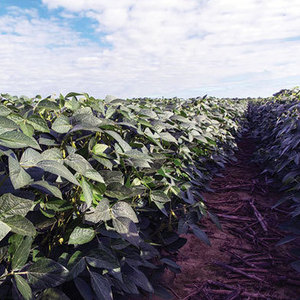Scientific Data the Cornerstone of Biofuels Policies

October 26, 2017
BY The National Biodiesel Board
Published research supports the benefits of biodiesel in reducing wastes, supporting domestic jobs and reducing harmful emissions. The National Biodiesel Board has long-touted biodiesel’s benefits by standing behind quantified, scientific analysis and making the biodiesel industry a leader when it comes to bona fide sustainability benefits. Data is the cornerstone of sound policies like the Renewable Fuel Standard and the California Low Carbon Fuel Standard.
Previous work by U.S. EPA, the California Air Resources Board, USDA, Argonne National Lab and others consistently show biodiesel lifecycle emissions at least 50 percent better than petroleum. But skeptics wonder about the indirect expansion of global agriculture as U.S. policies have their positive effect on rural farm communities. A new academic paper published in Biotechnology for Biofuels shows biodiesel’s benefits are even better than previous models suggest. More data is available now than ever before, and that data shows farmers are producing more on fewer acres. This means that penalties for indirect land use change by EPA and CARB overestimate emissions from creating new farm land.
“This latest research verifies biodiesel is an ideal option to support American-made energy,” said Don Scott, NBB director of sustainability. “The more accurate the models become, the more clearly they show biodiesel’s benefits.”
Without the controversial indirect effects, biodiesel reduces greenhouse gas (GHG) emissions by 85 percent compared to fossil fuels. Using modeling that includes predicted indirect emissions lowered biodiesel’s advantage to just more than 50 percent cleaner than diesel fuel. That is, according to the modeling done by EPA in 2010 and CARB in 2014. Purdue University’s latest research shows these models underestimated the carbon benefit of biodiesel by 10 percent.
“Biodiesel is already recognized as the commercial biofuel with the lowest net GHG emissions,” Scott said. “The power in these new findings is that science is improving. The prediction of economic impacts and land use change is becoming more reliable. More data has been analyzed today than has ever been available in the past. As these models look more and more like the real world, biodiesel’s extensive benefits become more clear.”
Advertisement
Advertisement
Advertisement
Advertisement
Related Stories
The USDA significantly increased its estimate for 2025-’26 soybean oil use in biofuel production in its latest World Agricultural Supply and Demand Estimates report, released July 11. The outlook for soybean production was revised down.
U.S. fuel ethanol capacity fell slightly in April, while biodiesel and renewable diesel capacity held steady, according to data released by the U.S. EIA on June 30. Feedstock consumption was down when compared to the previous month.
The U.S. EPA on July 8 hosted virtual public hearing to gather input on the agency’s recently released proposed rule to set 2026 and 2027 RFS RVOs. Members of the biofuel industry were among those to offer testimony during the event.
The USDA’s Risk Management Agency is implementing multiple changes to the Camelina pilot insurance program for the 2026 and succeeding crop years. The changes will expand coverage options and provide greater flexibility for producers.
The USDA’s National Agricultural Statistics Service on June 30 released its annual Acreage report, estimating that 83.4 million acres of soybeans have been planted in the U.S. this year, down 4% when compared to 2024.
Upcoming Events










